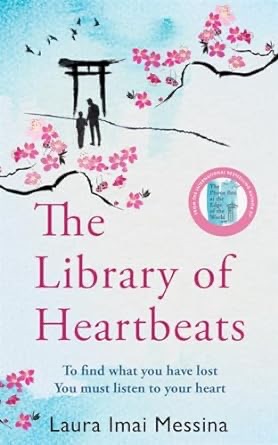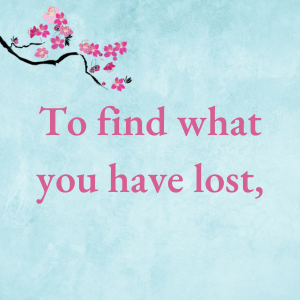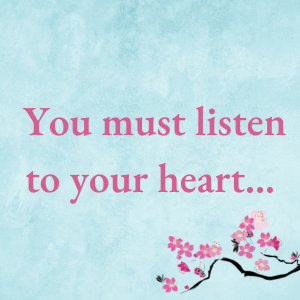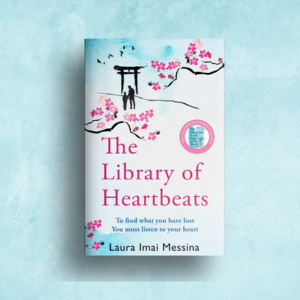
A POWERFUL, MOVING NOVEL OF GRIEF, HOPE, FRIENDSHIP AND LOVE BASED ON A REAL HEARTBEAT ARCHIVE ON AN ISLAND IN JAPAN.
To find what you have lost, you must listen to your heart . . .
On the peaceful Japanese island of Teshima there is a library of heartbeats, a place where the heartbeats of visitors from all around the world are collected. In this small, isolated building, the heartbeats of people who are still alive or have already passed away continue to echo.
Several miles away, in the ancient city of Kamakura, two lonely souls meet: Shuichi, a forty-year-old illustrator, who returns to his home-town to fix up the house of his recently deceased mother, and eight-year-old Kenta, a child who wanders like a shadow around Shuichi’s house.
Day by day, the trust between Shuichi and Kenta grows until they discover they share a bond that will tie them together for life. Their journey will lead them to Teshima and to the library of heartbeats . . .

I read a lot of books about grief and bereavement. When I became a widow at the age of 36 it was a massive fault line carved across my life. Everything suddenly became split into a before and after. Nobody I knew, except my older aunties in their seventies had been through this so I had no frame of reference. In a strange way it was like being reborn into a world I didn’t know. Like a baby, I was simply coping minute to minute, only dealing with what was directly in front of me and trying to avoid a big black hole where my previous self and everything I knew had been swallowed up. Baby steps were the only way. Because I couldn’t relate to anyone I knew, I did the next best thing I could; I decided to read about it. It was possibly the only route a bookworm like me could take. So I read Joan Didion, Elizabeth Kubler-Ross, Joyce Carol Oates and Deborah Moggach. When I started to read about death rituals in different cultures I realised ours wasn’t the healthiest way to grieve. All I could do was read, put one foot in front of the other and try to do what my husband told me – ‘don’t get stuck’. He had seen the loneliness of his own father after his mother was killed by a drunk driver two decades before and he didn’t want that for me. So I tried to keep moving. I made terrible mistakes, but kept going. It was books and a dog that saved me.

I loved The Phonebox at the Edge of the World and the idea of a place to go and talk to your lost one. It’s a ritual, a point and place of connection where all your anger and grief can be expressed. Then when you put the phone down and leave the box, you leave those feelings behind. Catharsis is very important, but as time goes on so is containment. The box allows people to grieve, but at a time and place of their choice. I’m paraphrasing Samuel Beckett when I say that remembrance is important, because if you choose to remember those feelings have less chances to sneak up on you unexpectedly. Shuichi is an artist who returns to her home town of Kamakura after the death of her mother. Her plan is to do carry out all the administrative tasks that occur when someone dies, but also to tidy away her mum’s belongings. Slowly she starts to sort the contents of her mother’s house into boxes and places the finished ones in the garage. However, she wasn’t expecting to find a young boy in there, going through the boxes and taking items out. This is a daily occurrence. The two characters are similar, in that they seem quite naive but also self-contained. They also share a quiet, gentle nature. Slowly, a friendship grows between Shuichi and this boy called Kenya, who is only eight years old. They connect deeply and in a way they’re experiencing the world together: things are new to Kenya because he is an eight year old boy, whereas Shuichi is navigating a new world without her mother. Shuichi is no longer a child, so she’s exploring a whole new world as an adult but with all these new, difficult feelings. Her parental feelings are also stirred up by this new child in her life. Children are very healing. We experience the world anew as they discover it and their joy and wonder can be intoxicating.

As the days go by they talk about their feelings of grief and loss. Soon they are discussing ways to remember Shuichi’s mother. I find grief rituals fascinating and I find Japanese ways of thinking about grief are much more holistic than ours. They don’t try to suppress their emotions, knowing that if they do the pain is only being stored away for later and can have somatic effects on the body. They try to find ways to communicate with their loved one, even knowing they might not be heard. Unsent letters are a standard exercise for writing therapy, because there is a freedom in knowing they won’t be read. We can be angry and vent those negative emotions we feel, but don’t think we can say. The communication can then be spontaneous rather than rehearsed, just as if the loved one is still alive and we continue our relationship with them. I had no idea about the library on Teshima where heartbeats are sent from around the world. I could see the comfort in knowing that the proof your loved one lived is stored somewhere. That in this one place their heart is still beating.

I always find Japanese fiction very calm and thoughtful. I’ve worked using haiku as a form of meditation and it’s amazing how the structure of a haiku makes us concentrate on what is the most important feeling we want to convey. It makes us distil a moment in time and the resulting poem, though often beautiful, isn’t the point. The journey the poet’s mind has taken to get there is the important part. I felt a little like that about the style of the book. We’re not compelled to read because there’s a mystery or secret to discover. It’s about the character’s journey and the process of change; their adaptation to the world as it is now. There are moments of exquisite description and a philosophical element too. It’s one of those books where you find yourself going back to re-read a sentence that’s so beautiful it stops you in your tracks. Although it starts with a feeling of sadness, I felt uplifted at the end. There’s nothing overwrought or sentimental about it either and it’s because the writer has such a gentle touch, that the full impact of the emotions really surprise you. I felt changed by this story and that’s how powerful literature can be.
Out now from Manila Press
I’m so glad this book spoke to you x
LikeLiked by 1 person
Thank you Jo, we can take so much from other cultures to change the way we grieve. Different ideas work for different people. I kept a journal to ‘write’ to my late husband. I’m also lucky to have a new husband who understands too. Xx
LikeLiked by 1 person